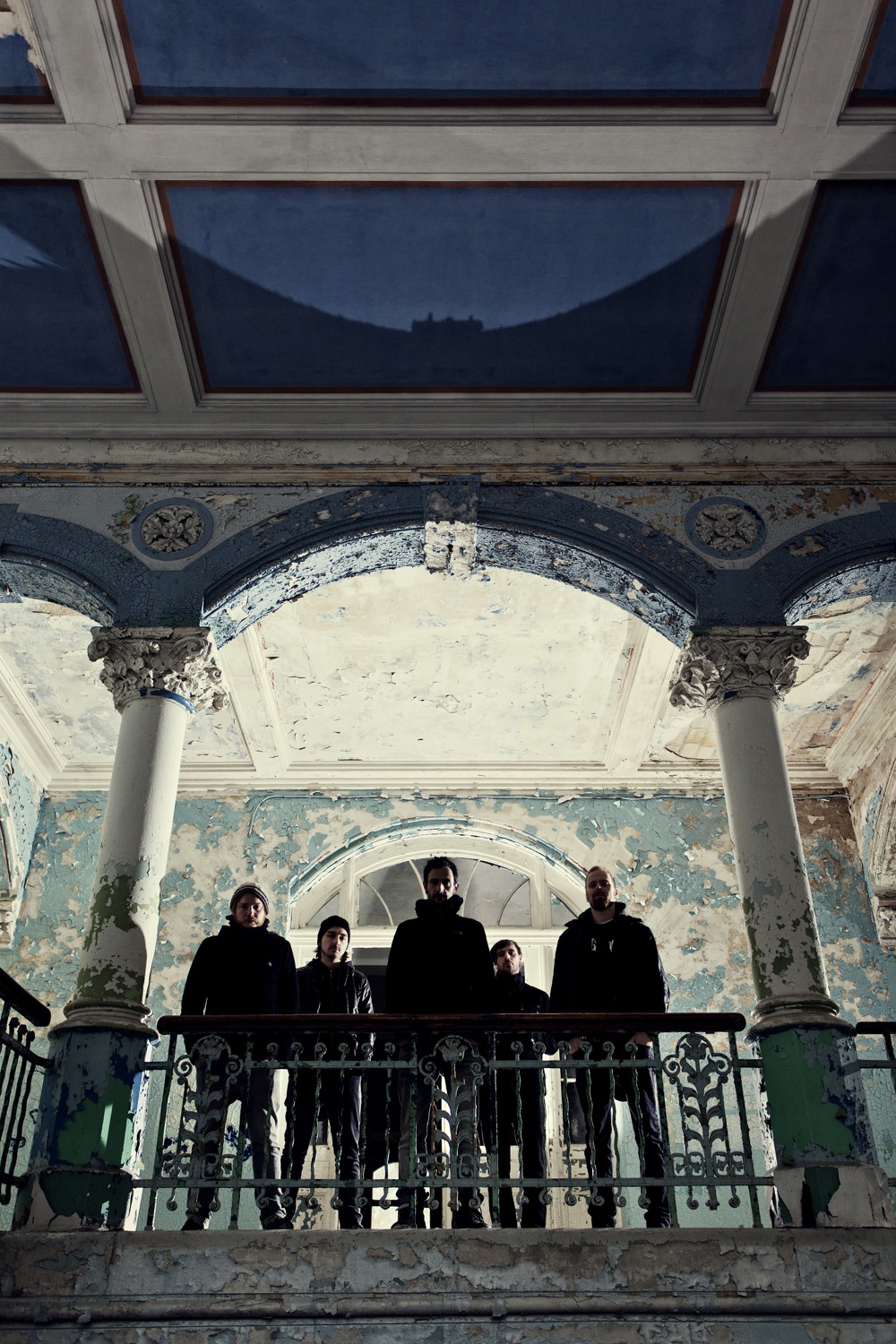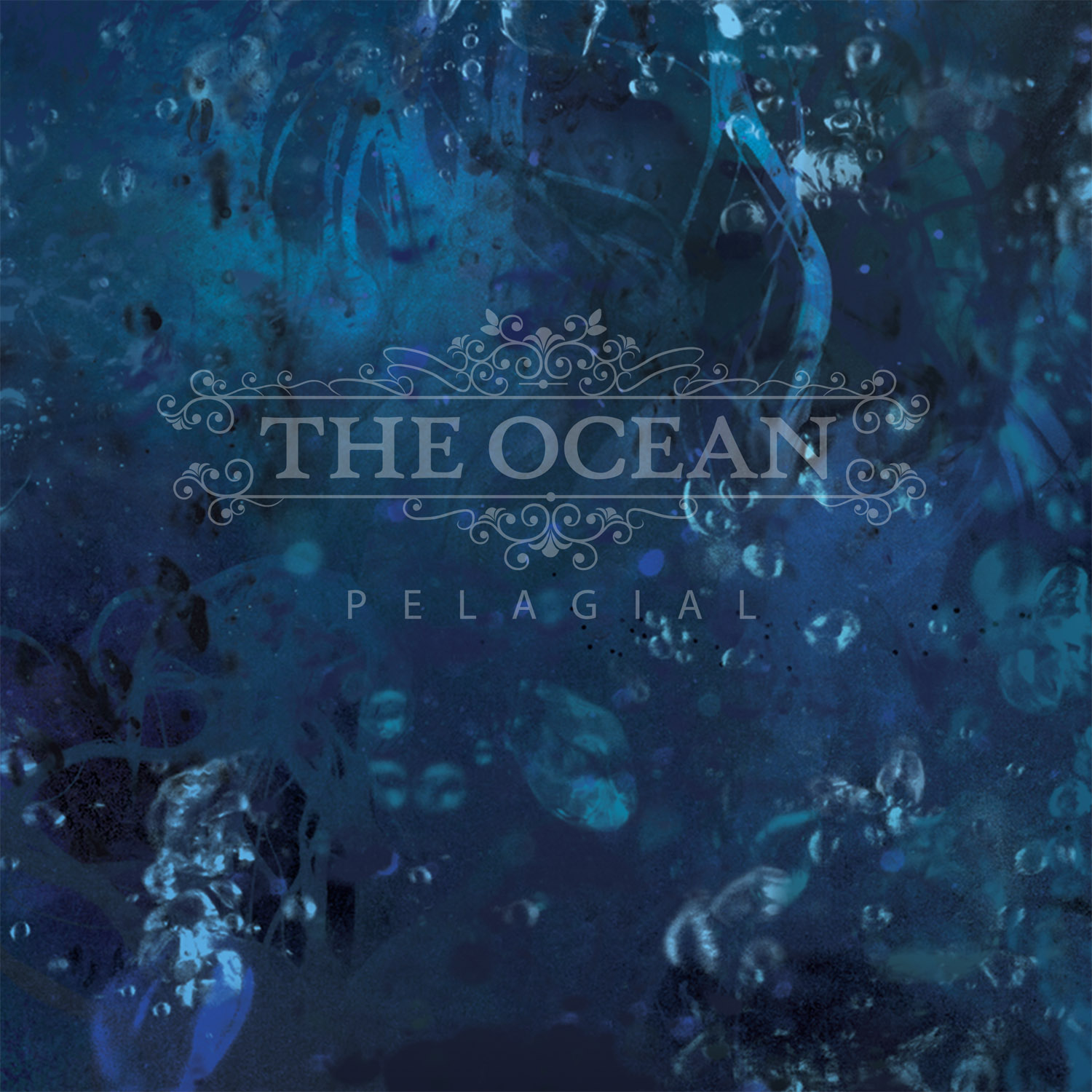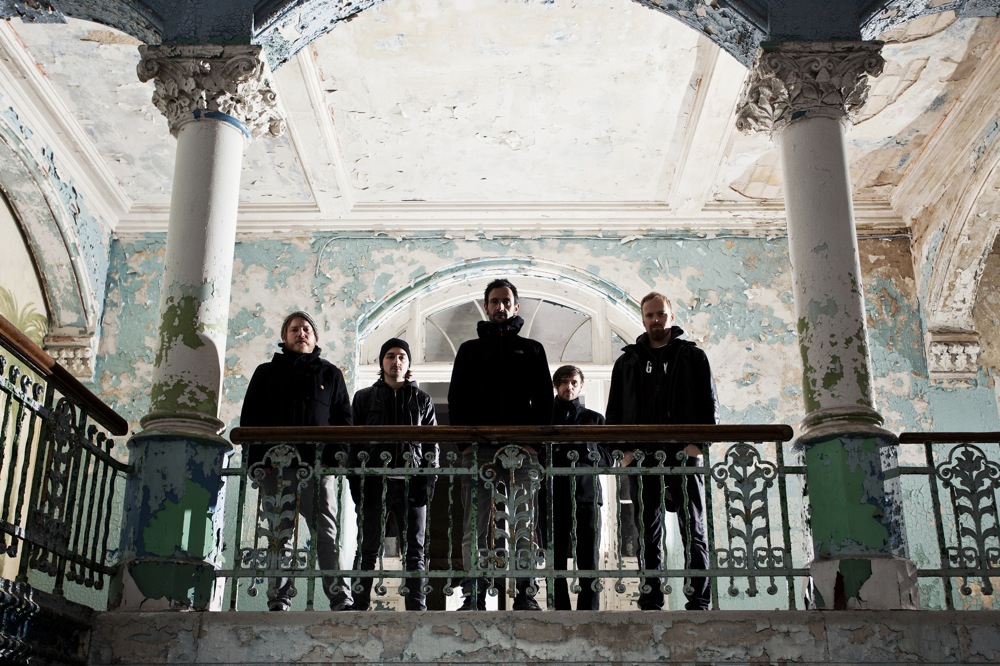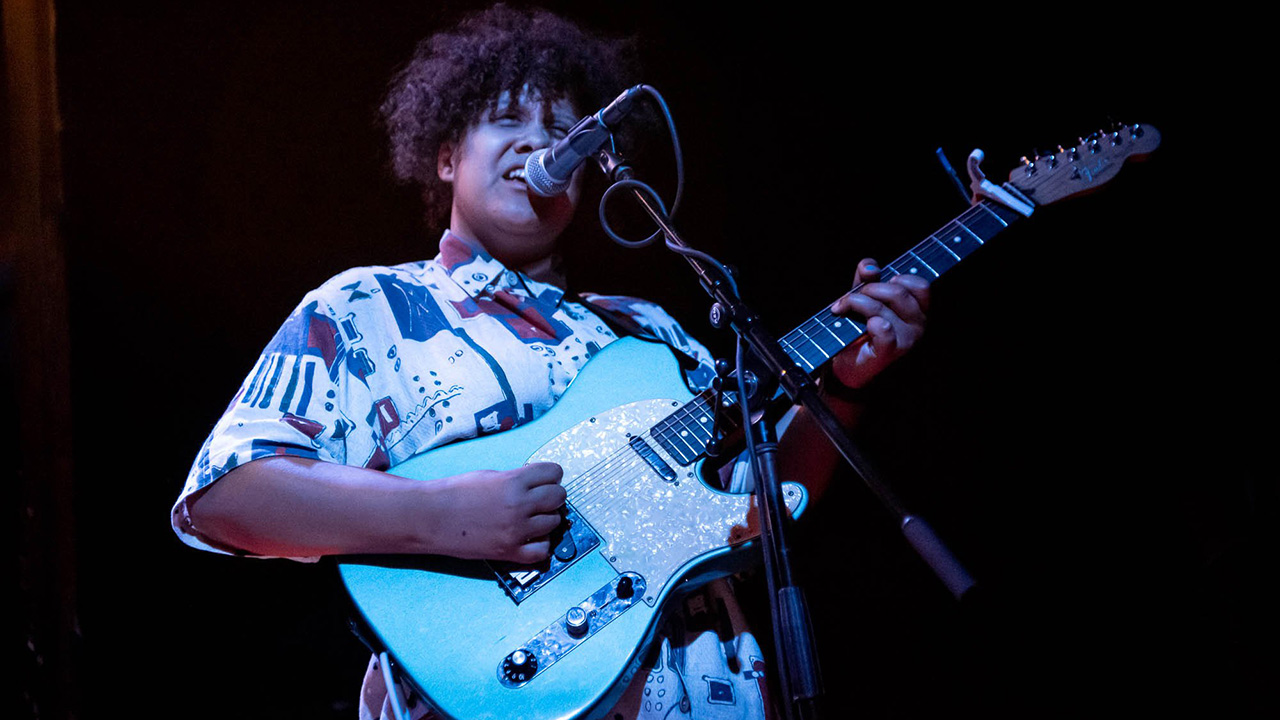Interview: The Ocean Guitarist Robin Staps Discusses New Album, ‘Pelagial’
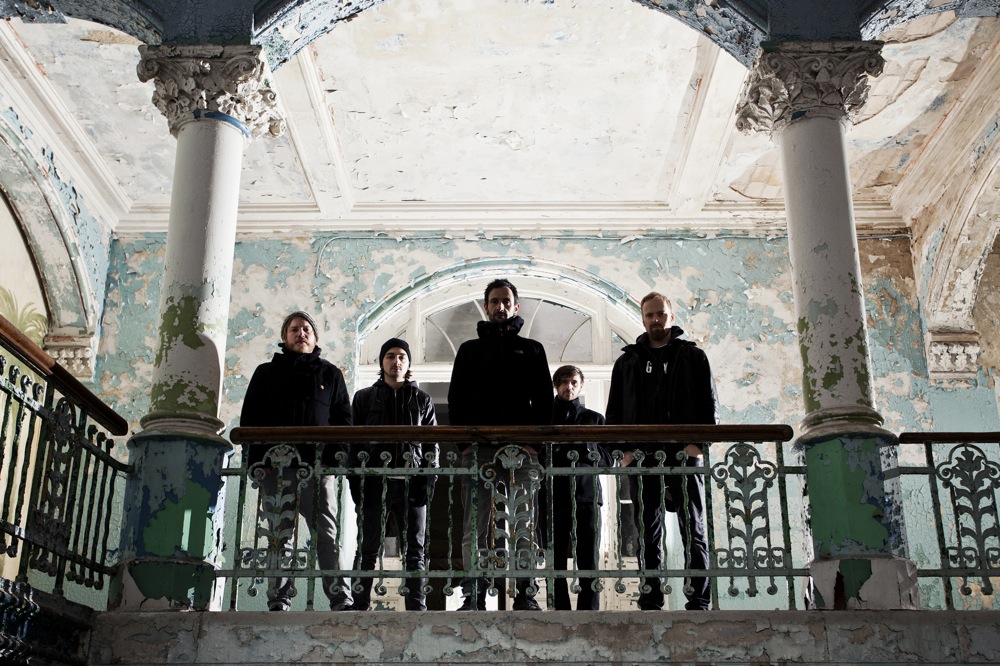
The Ocean is a German progressive metal band that began in 2000 and built a reputation on the strength of their creative experimentation on early albums like Fluxion, Aeolian and Precambrian.
Subsequently, they recorded a massive double concept album, released in two parts as Heliocentric and Anthropocentric in 2010.
Now, led by guitarist and mastermind Robin Staps, they are taking their musicianship to a new depth — literally — with Pelagial, a concept album based on a journey to the murkiest depths of the sea.
I recently chatted with Staps about all things Pelagial and more. You can read the first part of the interview here. The second part is below.
Enjoy the conversation and visit the band online at theoceancollective.com.
GUITAR WORLD: You've done so much with the "Centric" albums, and you've been pretty much all around the world touring. Has that opened up your mind to some extent? With more new experiences, do you become more creative?
It definitely has changed me a lot on a personal level in many regards because it's a very different life when you're not at home for months [laughs]. You get to see so many different places and so many impressions to juggle, that a lot of times you just lose your sense of chronology. You just don't know what happened first when you think of certain events, and if that person was in the bend at that point, stuff like that. It's really weird.
Get The Pick Newsletter
All the latest guitar news, interviews, lessons, reviews, deals and more, direct to your inbox!
But with regards to creativity, I guess I'm always employing the things I experience, and that also refers to places I visit when it comes to writing my music. I've never really had a shortage of ideas or creativity. As soon as I have time, a guitar, a place with an open horizon and the ocean not too far away, then I have ideas [laughs]. It's always been like that.
But I believe that traveling definitely has an important role. I can't write at home. It just doesn't work, and I can't write on tour, for some strange reason. Well, I guess there's never really any time to do that. We're sitting in the van all day, and sound-checking and then playing a show. I have to be in a place that's a bit away from all the everyday routines at home, and has a wide horizon, as I call it. I need distance, and I need to be able to look into the distance to write music. That's somehow important to me and I can't do that when I'm confined to a small room.
I read that you did shows in places like Hong Kong and Siberia. I've never heard of any band playing in Hong Kong. I don't think even Iron Maiden have played there, and they've hoisted their flag in almost every place on this planet.
That's right, and it's a shame for them because it's an amazing place to play! We're going back to Hong Kong this year, actually, and to China as well. We did 12 shows in China, one in Hong Kong and this year we're also doing Taiwan. All these shows were really, really cool. It was probably the most fun tour we've ever done. I was surprised by the level of professionalism there. The venues were really good, the sound systems were good, and the tour was organized was organized in a very efficient way. You don't tour by van there because the distances are too large, so we took trains and planes.
But everything is like super high-tech. The train stations are six times as big as any German train station. It was a really exciting experience, and we had the best food we've ever had on tour. And Siberia was amazing too, surprisingly! We didn't think anyone would know us there, but because so few bands go there, the people that come out to shows really investigate before they come to the show. They find out about the bands they're going to see.
There were people singing along, and everyone knew the songs. We got fairly decent turnouts, 300 to 400 people in Siberia. It was the first time we'd ever been there and it was great. People are really passionate and really fucking into it. They don't get many shows, so whenever a band comes along the whole town comes out and goes crazy. So those were some of the most rewarding experiences on tour. It's usually not the major cities that are so exciting. It's the more peripheral places that are at least equally interesting and exciting.
In terms of the new album, guitar-wise, did you have to bring about any change in your style, or was it just a change in concept?
I guess I wouldn't call them changes, but there are things that have evolved since the Centrics in regard to playing guitar. Some of the riffs on this album are a lot faster and "fiddlish" than on previous albums, and I guess I have evolved as a musician and so has Jonathan, Luc and everyone in the band.
It always shows when you start writing new stuff, the way you approach writing riffs or drum patterns, making use of everything you've got that is constantly evolving and changing. So a lot has happened musically, also because we played together for such a long time now. We did so many shows in a short amount of time. We've played with this lineup since 2009, so it's been about four years. In those four years, we've played 600 shows or something like that. So we all really got to know each other, personally and on a musical level, and now we're much more efficient when it comes to writing too.
When I write drum parts now, for example, I program them only very loosely because I know what Luc is going to do with them and I want to leave him that space to really showcase his talent, and to write his own parts that are going to be so much better than anything I could program. So that's something that has really changed and evolved over the last two to three years on tour. I really know how Luc plays drums and he knows how I perceive certain parts, how I write songs and how I want them to evolve. He works with that. Getting to know each other so intensely has definitely helped us evolve on a musical level and with regards to writing as well.
You wrote this as a single piece. As a guitarist, did that give you more freedom to do your thing, or did it make it more complex?
It certainly did not make it easier, having this concept from the beginning. It is a constraint at first. I've tried to approach it from different angles and I've tried a few things. I had to discard a few approaches because it just wasn't working out with them. At first I really wanted it to be a linear progression, music that starts very lightweight and becomes really dark and heavy toward the end, music that starts more upbeat with a faster pace and then goes slower, music that starts higher in tuning and just continuously goes lower. All these things are happening with the album, but it's not that continuous or linear.
I realized it doesn't make sense to create a tempo curve that over 50 minutes just goes gradually slower and slower. That would be boring, and what makes music exciting is unforeseeable events. That's something I realized through the process, and I didn't want to write a boring avant-garde album. I wanted to make an album that rocks, and then you have to keep in mind that what makes music exciting is surprises. So I had to step away from that super-gradual linear approach. So there are some up and down movements now, which is totally fine because you have in the water column as well. There are vertical currents and stuff like that. So it's not breaking the concept, and it makes things a lot more interesting. I think the general feeling is still there.
You feel where it's heading toward, and you feel that it's going down and getting darker and colder, somehow. That's what was important to me in the end, but it was a constraint. I couldn't just write any song depending on the momentary mood I was in. I always had to keep the overall feel of the album in place, and whenever I was writing riffs, I always knew where they would belong on the timeline of the album. So when I had a riff, I was like, "This is going to be a deep sea riff" or "This one is more like a surface, light-weightish kind of riff." So that's the routine I acquired fairly quickly and I kind of controlled my own writing that way, checking and knowing while I was writing it if it would fit and where it would fit on the album.
Have you practiced playing the album live yet? Do you think you'll need to develop your stamina to play it in its entirety?
That's what we're working on right now. It feels great to play it. We are rehearsing on stage here at the local venue where we recorded our Heliocentric record release show for our upcoming DVD. We've done it back then and how we're doing the same thing again for one week. It's coming together. I wish we had more time, of course. We've never played this album together before. We met in Berlin a month ago, but we couldn't rehearse with Luc because he cut up his finger and had to put it back together with like seven stitches, so he couldn't play for two and a half weeks.
So we were all playing with drums from the tape machine or the CD. This is actually the first time we're playing everything together live. You always realize there are certain things that work out great and other things don't. You have to adopt volumes of sounds and samples to make it fit the live environment and adopt frequencies. It's a ton of work. We've been rehearsing from 10 in the morning till 10 or 11 at night these days. But we're going on tour Friday, and by that time everything needs to fit. I'm fairly confident that we'll be all right for the first show.
Given the atmosphere and feel of the album, do you agree it would be perfect for a movie soundtrack?
Well, it is a soundtrack to a movie, because we are releasing it with a movie. There's a DVD coming out with the special-edition box set of the album that has a 53-minute movie, which is basically like a massive video clip. There is a certain course of action and events going through the movie. The movie was written after the music, so it's kind of like the opposite concept. It's not that we wrote the music to be the soundtrack of a movie, but we actually made a movie that would be the movie to the album, so to speak.
But yeah, it is very much working out like that. I'm very fond of the results Craig Murray has created. It has really turned out amazing, I think, and to get the full experience of the album you should really watch the film and listen to the Dolby Surround mix of it. That's what's on the special DVD that's coming in those limited box sets, and it's an entirely new experience of this audio-visual kind of project that is this album.
I'm glad you mentioned that. It makes the special-edition box set even more "special."
Yeah, I think it's definitely worth it because so much work went into that too. Craig has been cutting and editing that movie for almost a year, and for the last three months he lived in a sleeping bag in a studio just so that he could finish it. It's just a crazy project. We will show it live, too. We will have video projections that will be screening the movie while we play the album. I'm not sure if we'll be able to do that in the US; hopefully we can. But here in Europe it's an integral part of our live show.
That's what I was about to ask for my final question. I'm sure you'll want your live show to do justice to the album, so what kind of visuals you're preparing? But I guess you've already done that!
Yes, of course. That's the movie, and that's exactly what we're showing live in one piece. The contents of it is lots of oceanic stuff, visualizing all the separate depth zones, lots of stuff I shot myself in Australia, as I'm a SCUBA diver, and there's some footage we took from old movies and stuff like that. And there's also a protagonist, a girl who's going through stage of emotion through the movie, which makes reference to the lyrics because, lyrically, the album is a psychological journey from the surface to the bottom of the human mind, and a journey from the surface to the bottom of the sea. In the movie, that is visualized by the girl who's going through all different stages of joy, pain, terror and fear, while progressing toward the depths of her own psyche. So that's what you're going to get to see in the movie in a very artistic and abstract way. I'm super-excited about getting that out.
Andrew Bansal is a writer who has been running his own website, Metal Assault, since early 2010, and has been prolific in covering the hard rock and heavy metal scene by posting interviews, news, reviews and pictures on his website — with the help of a small group of people. Up till February 2012 he was based in Los Angeles. After that, he had to move to India, but is still carrying on his heavy metal endeavors with the same intensity.
